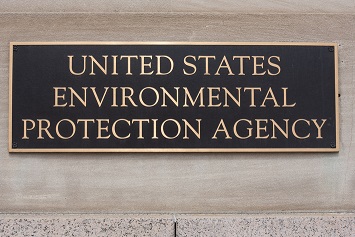The EPA’s Strengthening Transparency in Regulatory Science proposal occupies a mere 7 pages in the Federal Register (April 30, 2018), and yet, among scientists, human health and environmental groups, and certain industry organizations, the proposal has been the subject of intense discussion. Congress has also been weighing in on the merits of the proposal.
In an October 3, 2018, hearing, members of the Senate Subcommittee on Superfund, Waste Management, and Regulatory Oversight voiced their views and also interviewed three witnesses who also expressed their opinions on the merits of the proposal. Generally, both supporters and opponents of the proposal base their positions on the same contention—that the other side is manipulating the use of science in regulatory decisions based on preconceived political beliefs rather than on the best science itself.
A great deal of the controversy derives from the EPA’s proposed intention to change its current policy wherein the Agency makes use of scientific studies that are not made public to protect the privacy of study participants. The proposal would instead block the Agency from making use of studies that are not publicly disclosed so that independent third-party verification, generally through replication, can occur. The proposal would allow the EPA administrator to waive this requirement on a case-by-case basis.
A Deregulatory Action?
Considering that it would influence the basis of many EPA regulatory decisions while not by itself affecting human health, the environment, or the economy, the proposal has attracted an unusually large amount of attention in the media and also from the general public. More than 9,000 comments on the proposal were submitted to the EPA’s rulemaking docket (see https://www.regulations.gov, Docket EPA–HQ–OA–2018–0259). Some of those comments are from societies collectively representing hundreds of thousands of scientists. Most of these commenters view the proposal as a dangerous move that will effectively exclude from the EPA’s regulatory efforts some of the most important investigations into how pollutants or chemicals in the air, water, and products harm the environment and human health. These parties see the proposal as part of a pattern under the Trump EPA to fold the role of science at the EPA into the administration’s larger policy of deregulation.
For example, even before the proposal was officially released, the Union of Concerned Scientists sent ex-EPA Administrator Scott Pruitt a letter that stated that the reproducibility and transparency concerns that gave rise to the proposal are “phony issues that weaponize ‘transparency’ to facilitate political interference in science-based decision-making, rather than genuinely address either.”
Another letter signed by leaders of seven science societies (including the American Geophysical Union and American Meteorological Society) purportedly representing over 270,000 scientists complains that the proposal would “give broad authority to the [EPA] Administrator to determine which science could be used in rulemaking without a process outlining clear parameters for making a determination.”
Support for the proposal comes from the American Chemistry Council (ACC), the major advocate of the nation’s chemical manufacturing sector. While the ACC says it “supports” aspects of the proposal—e.g., a stronger emphasis on making dose-response data public—it finds it short on details and requests many expansions and clarifications. Also, the ACC takes a corporate perspective on the provision that would exclude studies from the EPA’s rulemaking because they cannot be made public. The ACC believes that such information can be of value in regulation.
“In circumstances where company confidential business information (CBI) and other intellectual property may be implicated, EPA should confer with the CBI data owner to determine how to make that data available to the greatest extent possible without disclosing the CBI within that data, study, or model,” stated the ACC.
For example, the ACC continues, “in circumstances where there is significant difficulty making data available in a meaningful way, EPA should consider contracting with external experts in the scientific discipline at issue, have them sign confidentiality agreements, analyze the data, and prepare a confidential report with a non-confidential summary for EPA to share publicly.”

Replication
At the Senate hearing, there was agreement that in its regulatory actions, the EPA should make use of the “best available science” before reaching a final regulatory decision. According to proponents of the proposal, any scientific findings that are not subject to validation by replication by independent third parties can be consulted by the Agency but cannot be used to underlie a rule.
Edward Calabrese, PhD, a professor at the University of Massachusetts at Amherst School of Public Health and Health Sciences, noted that replication is the “gold standard,” especially when you are dealing with low-dose exposures.
“High dose exposure is one thing, where you kind of overwhelm systems with massive exposures and you can see effects,” said Calabrese. “But human exposures are going to be at much lower levels, and you really want to see if there are adverse effects that you are trying to prevent and you think might be occurring, then you want to be able, in your experimental systems, to see if these findings are reproduceable or not.
“The problem with these types of things is that, especially with regard to epidemiologic data and to somewhat minor effects, a lot of times a study comes out positive in one and then can’t be replicated in many other studies. So the gold standard is that we really have to hold the scientific researchers accountable for essentially providing reliable information to regulatory agencies and to society to give us confidence that the findings are sustainable and are believable, and this doesn’t have to necessarily involve an exact replication, but would have to involve some type of confirmatory reliability that is substantial, that adds strong weight of evidence to any conclusion.”
An opposing position was taken by New Jersey’s Democratic Senator Corey Booker, who asserted that the requirement to replicate simply undermines any effort the EPA makes to identify and rely on use of the best available science.
“Examples of this are common sense,” said Booker. “If the EPA could not consider scientific studies unless the underlying data is made publicly available in a way that is sufficient for validation, the Agency would not be able to consider science gathered in the aftermath of environmental disasters, such as the Deepwater Horizon oil spill, which is not a scientifically replicable event. The Agency would not be able to consider studies that rely on private medical information or confidential business information because that data could not be made publicly available.”
Booker also noted that a study wherein the goal is to replicate human response to exposure to a hazardous pollutant cannot be ethically conducted.
“Obviously, it would be unethical for anyone to attempt to replicate public health analyses that used data gathered from different exposures to certain populations and communities, exposures to lead, to PCBs, to mercury or other chemical contaminants,” said Booker. “We would not want anybody to replicate those studies and that suffering. For example, the EPA bases its standards for lead-based paint hazards on long-term studies of children who were exposed to lead. Prohibiting the EPA from using these historical studies would cripple its ability to protect children and other vulnerable populations from lead.”
For Rush Holt, PhD, CEO of the American Association for the Advancement of Science, replication is less important than validation.
“Surely, you do want verification,” Holt said, but added that it is a “red herring to say replication is what is necessary.”
“The verification can come in various ways: through repeating the experiment, if it is an experiment,” said Holt. “But even most experiments are hard to repeat exactly; and certainly natural disasters. Senator Booker referred to the Gulf oil discharge. Let’s hope that isn’t repeatable. There are many circumstances where it can’t be repeated in exactly the same way. But it can be verified, through peer review, through independent verification, through confirmation of the studies by putting them in the context of other studies. That is the way science works. And it is science, this whole process that you want to be maximized in the regulatory process.”

Sound Regulations
The lawmakers and witnesses also discussed how regulations could turn out good or bad based on the science used. “The EPA has a long history of creating burdensome, unnecessary regulations without giving the public an opportunity to fully vet the reasoning behind their decisions,” commented Senator Mike Rounds (R-SD). According to Rounds, the proposal, as well as legislation Rounds and other Republicans have introduced, which mirrors the proposal, would result in regulations that can withstand legal challenges, providing industry with a level of certainty that allows them to make long-term investment decisions.
Calabrese agreed with Rounds, stating, “Most EPA scientific decisions are based on multiple assumptions, some of which are frequently hidden, obscured, and often silent drivers of regulatory action, for example, the use of highly susceptible and often poorly predictive animal models. These assumptions need to be fully described, documented, and justified.”
Additional concerns about the kinds of regulations the EPA has produced were raised by Robert Hahn, a visiting professor at Oxford University’s Smith School of Enterprise and the Environment.
“You get a 200-page regulatory impact assessment, which is great for insomnia, on some chemical, and frequently the Agency doesn’t summarize in a very clear way what their main findings are; they don’t necessarily pay attention to the alternatives they were supposed to think about in finding the best and cheapest way of achieving the result; they don’t necessarily count all the benefits they should have,” Hahn told the lawmakers.
“We don’t want to necessarily eliminate, by law or regulation, some very persuasive data that is published in peer-reviewed journals, but my bugaboo is it is really important to share this data so other people can take a look at it in sunlight so that, when you are passing a regulation that is going to impose costs on people or make them lose their job, that you have the best available evidence upon which to make those decisions,” Hahn continued.
But Holt argued that the motivation behind the proposal is all about regulation and has nothing to do with science.
“To put it bluntly, the initiative you consider today is not about transparency or sound science; it apparently is about reducing regulations,” said Holt. “We know this because the architects and proponents present their proposals as part of a deregulatory agenda.”
Holt added that using all the available science does not necessarily result in good regulations.
“Surely, there are regulations that don’t work well, that are improper, that even should be removed, but the approach to making regulations is not to limit bad regulations by limiting the science that might lead to regulations, which is what is going on here,” said Holt. “The full science should be available. And this is not to make science more available; the effect is to restrict the science that is available, because the whole rule is about removing some studies that cannot be used to make regulations. So, we should ask, are we throwing out some good science here? And the answer that is arrived at by science society after science society, science after scientist, is yes, it would be throwing out good research.”
A transcript of the Senate hearing is available here.

